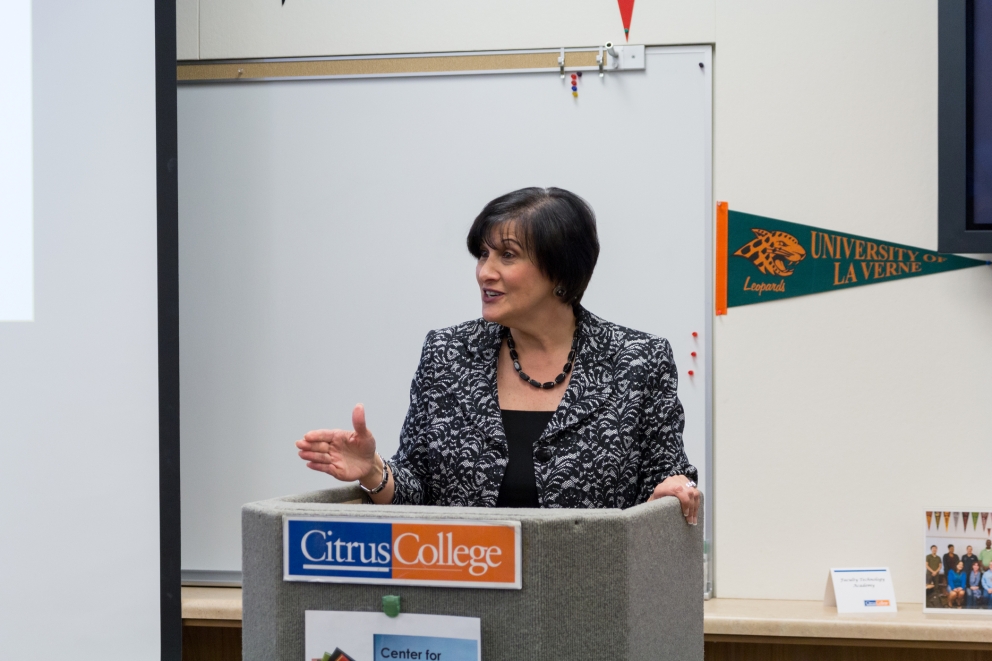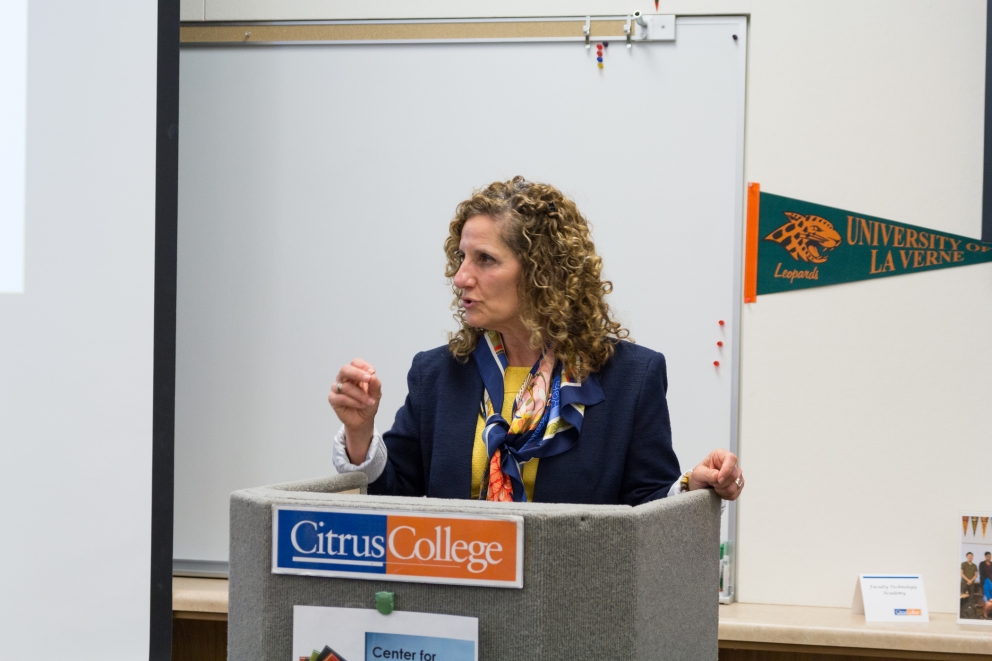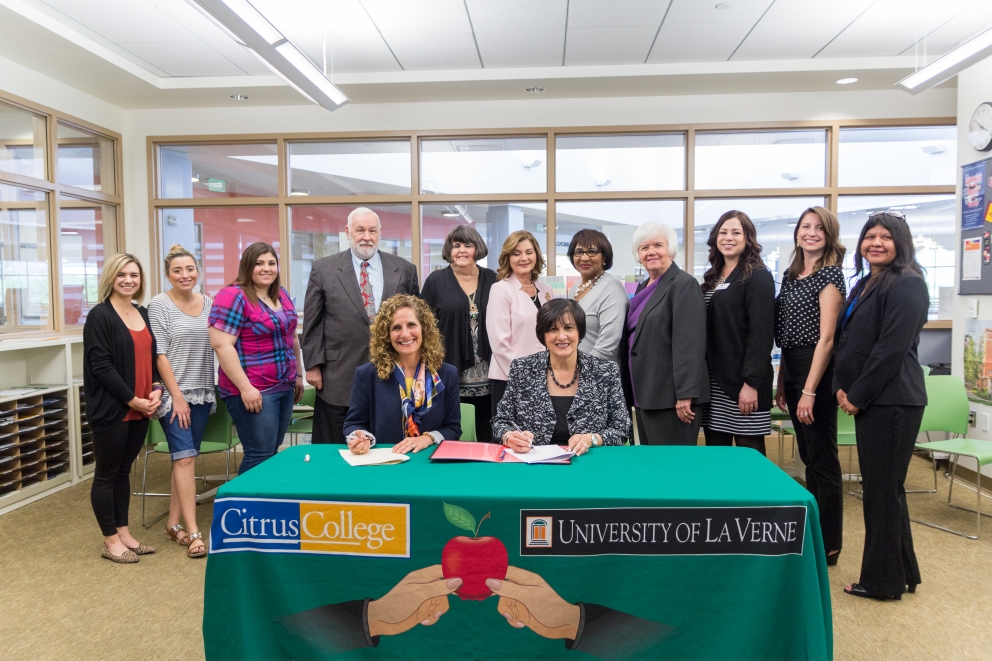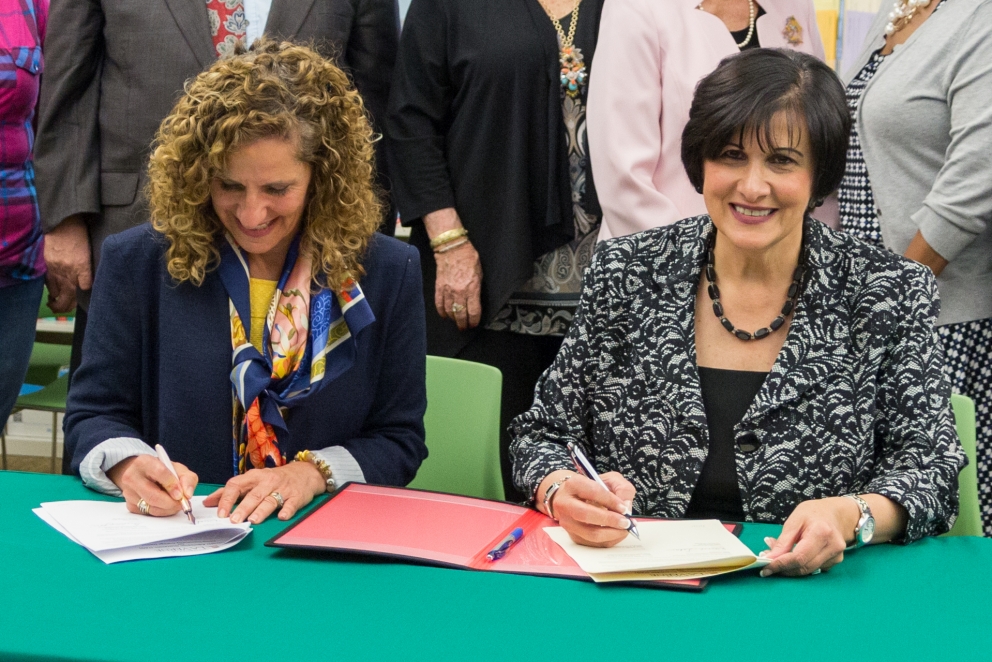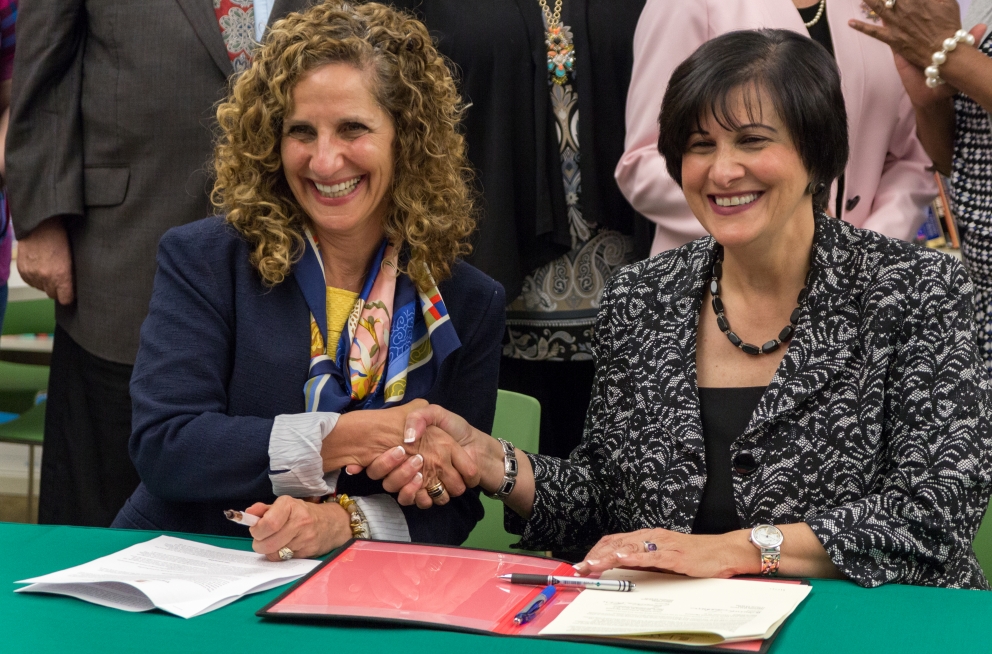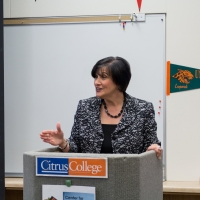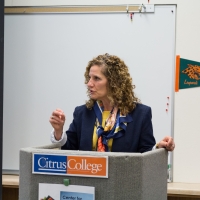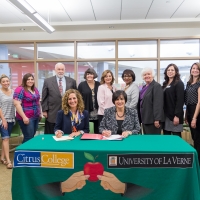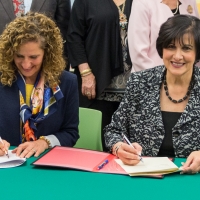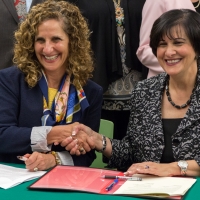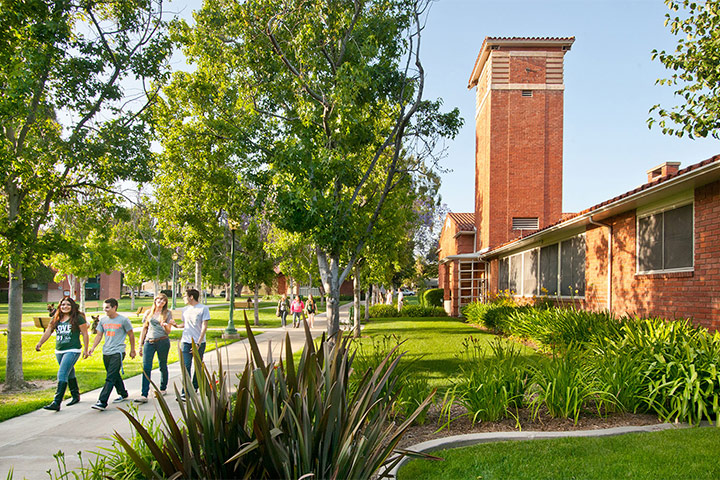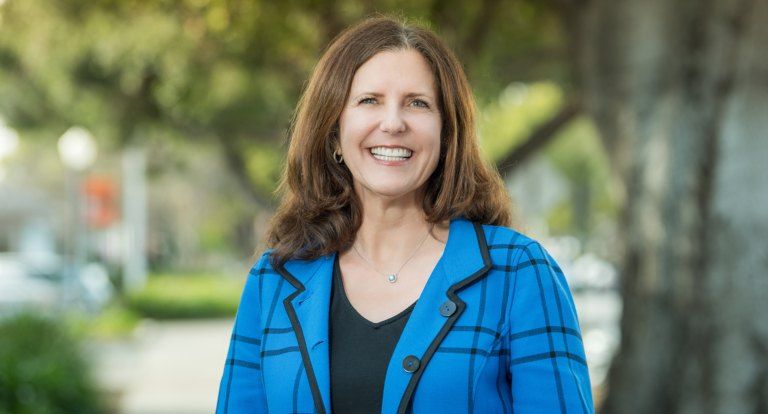University of La Verne, Citrus College Renew Student Transfer Partnership
The University of La Verne and Citrus College renewed a partnership April 5 that provides students an easier pathway between the 2-year and 4-year institutions including scholarships, waived application fees and guaranteed admission.
University of La Verne President Devorah Lieberman and Citrus College President Geraldine M. Perri signed the agreement at the Glendora campus during Citrus’ Center for Teacher Excellence Open House, another program in which Citrus and the University are partnered.
“The relationship that the University of La Verne and Citrus College has is really quite remarkable because the employees, staff and faculty at Citrus and at La Verne have such a respect for one another,” Lieberman said. “Truly, we are better together.”
It is the latest of 14 Transfer Admission Guarantee (TAG) agreements the University has either secured, renewed or is pursuing during the next six to nine months, said Todd Eckel, Director of Admissions for Regional and Online Campuses. The colleges stretch from Yucaipa in the Inland Empire to the coast and are located in San Bernardino, Riverside, Ventura and Santa Barbara counties.
“It’s a common goal in terms of student success, so the collaboration and the TAG agreement really aligns with the vision and values of both institutions,” Perri said.
The University is signing a transfer agreement with Chaffey College in Rancho Cucamonga on April 19.
Candyce Coleman, Associate Director of Transfer Admission, said the Citrus agreement provides qualified Citrus students who are considered traditional undergraduates a $1,000 scholarship in addition to their financial aid package. They will have access to University admissions and financial aid staff.
The agreement is also open to students transferring to La Verne’s Campus Accelerated Program for Adults, as well as regional campuses. Citrus employees, as well as their spouses and domestic partners, are eligible. They can receive varying tuition discounts depending on the major they are pursuing.
Dean of Regional and Online Campuses David Smith said such partnerships are part of a developing market, and are important because they provide students increased college accessibility and affordability.
“Our program is really built on relationships with community colleges,” Smith said.
